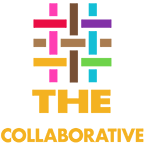Tilting the Scale: Current Provider Perspectives and Practices on Breastfeeding with HIV in the United States
 A new paper worked on by Pacific AETC’s own Co-Principal Investigator, Monica Hahn, MPH, MS, MD, on breast/chestfeeding for birthing people living with HIV is now available! Published on February 13th, 2023.
A new paper worked on by Pacific AETC’s own Co-Principal Investigator, Monica Hahn, MPH, MS, MD, on breast/chestfeeding for birthing people living with HIV is now available! Published on February 13th, 2023.
Abstract
The risk of vertical transmission from breastfeeding with HIV (BFHIV) has been found to be very low in optimal scenarios with sustained maternal viral suppression during pregnancy and postpartum. Medical providers must account for the risk of this serious adverse event alongside parental autonomy, breastfeeding benefits, and patient values. To assess provider practices, comfort, and challenges with BFHIV, an online mixed-method survey was sent to breastfeeding and HIV provider listservs from June to July 2021. The target population was US medical professionals from diverse practice settings with experience in clinical issues associated with BFHIV, including physicians, advanced practice providers, nurses, and lactation consultants. Data analysis utilized nonparametric hypothesis testing, ordinal regression, and reflexive thematic analysis. Most providers reported counseling pregnant people with HIV on infant feeding choices, but fewer specifically endorsed counseling about breastfeeding. Of 84 unique institutions identified by 100 included respondents, 10% had an institutional protocol supporting BFHIV. Institutional protocols were associated with higher degrees of provider comfort with BFHIV in optimal scenario clinical vignettes. Providers perceived that White patients faced fewer BFHIV barriers than patients with other racial identities. Discomfort balancing the goals to protect infants from infection risk and support the parent’s role in infant feeding decisions was a key theme in free text responses; this manifested in a spectrum of management styles ranging from patient’s informed choice to paternalism. This study highlights the tension providers navigate regarding BFHIV discussions, calling for patient care guidelines and protocols grounded in risk reduction and respect of patient autonomy.
